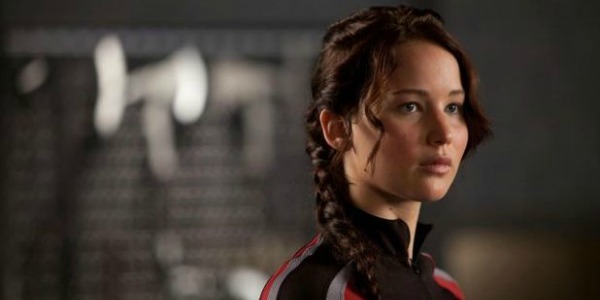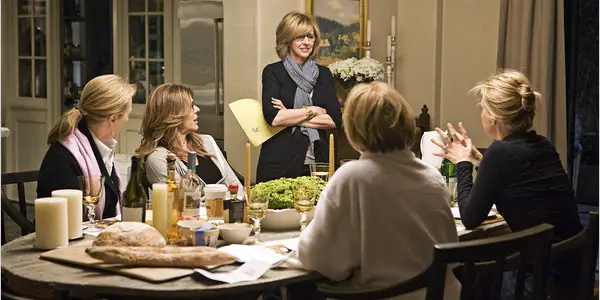Changing The Landscape: How Do We Increase The Number Of Women In And On Film?

I love film, more than people probably, and I will…
For as long as film has been made, it has been dominated by men, both in its making and on the screen itself. In the beginning we could’ve blamed this inequality on the views of the day. Then we could have blamed it on a societal hangover; views on women as equal to men had only recently changed, and representations hadn’t quite caught up. But now? Now? What do we blame it on? Why aren’t there more women making films?
In the past few years a number of media outlets have exposed this inequality with great fervour: “Look readers, look at the great inequality we have discovered!”. Yet, none of these articles have sought out a remedy to this problem. A remedy we greatly need. Film is essentially a reflection of how we see ourselves. We are drawn to, and enjoy, films which we feel best represent us and what we want from life. But when there are so few female protagonists on screen, what do we, as women, turn to? We enjoy the male-led films, sure, but why don’t we get to occupy the cinema screen as much as men? Why don’t we get to get be the hero and save the day? Why are we always the ones being saved?
When I first began studying film in 1998 I was aware that I was in the female minority. But the assumption always was that, on the whole, film “was a guy thing”, and we never really questioned it. I mean, we were girls, and we were there, so what was the problem? I think there was also a silent acknowledgement that because so many guys liked films, the films were made with them in mind. It had become a vicious cycle, where male protagonists were delivered up for a male audience. Whenever I came across feminism film writing it was always very keen on crow-baring women into films where there wasn’t a place for them, or finding sexism in films where it didn’t really seem to exist.
I felt like it came at the argument gunning for a fight, and never sought to sit down and discuss the problem. I realise now that I was most definitely reading the badly thought out essays, not the good ones (may I recommend the excellent work of Vivian Sobchack & B. Ruby Rich). But, in hindsight, it seems like good ones never sought out a remedy to the problem either. And why not? It was most likely that these feminist film critics assumed, as I did, that the inequality between men and women in and on screen would eventually even out. But it hasn’t. So what can we do about it?
Why Are There More Male Protagonists On Screen Than Female?
In a time when female protagonists such as Katniss Everdeen are so popular, and films such as Bridesmaids are so successful at the box office, it seems slightly unbelievable that there is actually a lack of female protagonists on the cinema screen. Unfortunately the statistics don’t exist to show us exactly how few of the most successful films boast female protagonists, but it only takes a quick look at the IMDb #250 to see that there is a problem. Even though it is quite obvious that the list contains a number of excellent films, which deserve their success, why do so many boast male protagonists? It’s a valid point that perhaps IMDb have a greater number of male users, and hence have more highly reviewed films that they connect to (ones with male protagonists).

However, it is even more likely that this is because a large number of successful films have male protagonists. So why are more films made with men in mind? Are men greater film fans? Do they attend the cinema more regularly than women? No, in fact, attendance at the cinema is equal between the sexes. Yes, equal.
So, now we have a puzzle. If men and women are attending the cinema in equal numbers, then why aren’t there more films being made with female protagonists? We know that they are equally as popular. Is it because women don’t care whether a film has a female protagonist? Possibly. But that would mean that men wouldn’t care either, and the representation of men and women on screen would even out. No, this inequality is because of one very simple fact.
On the whole, people create based on what they know. Men are more inclined to tell stories about themselves, and women likewise. So when men dominate the filmmaking industry, of course there are going to be more films about them. If there were more women behind the camera, perhaps there would be more women on screen. So, to our next question:
Why Aren’t There More Women Working In The Film Industry?
Articles have asked this question before and argued that it is because of an inherent sexism within the film making industry. Now, I have no doubt that sexism exists in this industry, as it still exists in a number of workplaces. Also, in an industry where so much is reliant on looks, I have little doubt that it is felt more keenly here. But I believe the reasons behind why there are so few women working in the film industry actually runs a bit deeper.

Firstly, we have to address the fact that some women may feel uncomfortable with a male dominated industry. It would be unreasonable not to consider this, but since many women have thrived in the industry this is not a likely answer. I, instead, suggest that the lack of women working in the industry might actually have more to do with the lack of women on screen. It seems an important fact that to be drawn to working in an industry, you first have to see yourself represented in it. And while many of us never see the people behind the camera, we are always seeing those in front of it. Because so little of the film landscape is occupied by women it is certainly no surprise that women don’t see a place for themselves in the industry as a whole.
This is the unfortunate point in this argument. We need more women behind the camera to create women on the screen, but we need more women on the screen to encourage more women to pick up a camera. If this wasn’t bad enough, then think of the successful women already in the industry, working hard to make these films. If, on the whole, we are drawn to what we know and like, sexism or not, a male producer is not always going to be drawn to a female-led film.
What Can We Do To Fix This?
So? What Now? What terrible vicious cycle are we confronted with? We want more women on screen. But if we are to get more women on screen we need to get more women into the film industry to make them for us. But while the film world appears not to include women how will they ever feel inclined to join it? There are no easy answers to these questions. Women cannot simply be pushed into the industry, neither can we force women onto the screen, engineering them into films as tokens in the bid for equality. Even if we did have more women in the industry this would not necessarily secure more women on screen.
Many female filmmakers have had a hand in excellent films, but which have all boasted male protagonists: Lars And The Real Girl was written by Nancy Oliver, Jane Goldman adapted The Woman In Black, while Hattie Dalton directed Third Star. It is worth noting, at this point, that male filmmakers also occasionally produce excellent female protagonists: Quentin Tarantino gave us Kill Bill, while Joss Whedon has given us a number of interesting female characters.
But, on the whole, it is the women filmmakers who are more likely to write and direct films with female protagonists: Debra Granik wrote Winter’s Bone, Andrea Arnold wrote and directed Fish Tank, and Jane Campion has depicted female protagonists throughout her career. So while it would not be certain that every female filmmaker would make a film with a female protagonist, they would still greatly impact upon the number we see.

So, how exactly do we get women into the industry? How do we assess female inclusion in the film landscape, without diverting it into a conversation about sexism? Odd as it may seem, there is actually an obvious answer to this question. On a ritualistic basis film companies offer up scripts to be doctored, or show their new productions to test audiences. Would it be so difficult a step for them to ask, specifically, not how good a film it is, but how the woman reading the script or watching the film feels about the inclusion of female characters. Or the film companies could simply look at the economical success of female-led films and consider the number of female attendees to such films. To make the connection between the female protagonist, the female cinema-goer, and the success of a film would be an important step.
In some cases, the connection is abundantly clear: The Hunger Games: Mockingjay Pt. I was the 7th highest grossing film at the 2014 global box office, while Frozen has become the 5th highest grossing film of all time (statistical data found via BoxOfficeMojo). It would be remiss of them not to consider that along with the quality of the films, it was this unique selling-point as being female-led that boosted the box office.
Another consideration would be that women don’t really get to demand female-led films. The internet is awash with fans asking for adaptations of popular franchises, ones with male protagonists. Women don’t have a back catalogue of material to be adapted (another unfortunate result of a past lacking in women in the workplace.) But how about this for a crazy idea, the people with the power, they ask the women what they want?
Conclusion
In my opinion, there aren’t many women on film because there aren’t the women in the industry to create those female protagonists. But until we have more inspiring female protagonists on-screen, women are going to feel alienated by the industry. So, what can we do? We can put our money into watching films with female protagonists, or ones made by female filmmakers. Show that we have an interest. Make our interest known in the box office takings, as we always have had. Put our faith in the “powers that be” that they will notice our interest, and into the few women who want to work in the film industry regardless of inhospitable it may look.
When we discuss the number of women in film, and on film, the argument often stumbles and falls. They recommend that “things must change!” as though it’s a command that someone must follow, they get distracted by actresses come directors who can be commodified and served up for the beauty magazines, or the article slips into the wayside of sexism arguments. In those cases, the men get the blame, they get defensive, and what started out as a hope for more women on film turns into a battle to justify an equal world for ourselves.
This is why I think we’ve never fully resolved this question. I also think a lot of journalists like to write about the subject without really caring about making a change. So, take it from me, I am a film postgraduate who can’t even see the door to the film industry let alone kick it in. It’s a popular industry, is difficult to get into, and men along with women find it hard to access. The result is that however many women we want to see working in the industry, and however many women we want to see on screen, the process is going to be a long and painful one. But it’ll be worth it.
What do you think about the number of female protagonists on screen? Would you like to see more women behind the camera? Share your thoughts below.
(top image: Sigourney Weaver in Alien – source: 20th Century Fox)
Does content like this matter to you?
Become a Member and support film journalism. Unlock access to all of Film Inquiry`s great articles. Join a community of like-minded readers who are passionate about cinema - get access to our private members Network, give back to independent filmmakers, and more.
I love film, more than people probably, and I will watch pretty much anything. Seriously, anything! I have a postgraduate education in film & have spent an exceptionally long time trying to get inside the film industry. I'm a big believer in treating every film the same, and bringing something new to the film theory table, giving reasons for every argument made. You'll find that I'm an empathetic and fun sort of reviewer, at least, I like to think so. If I'm not watching films I'm doing exceptionally nerdy stuff, like watching documentaries about the history of medicine and collecting photos of old post boxes.













